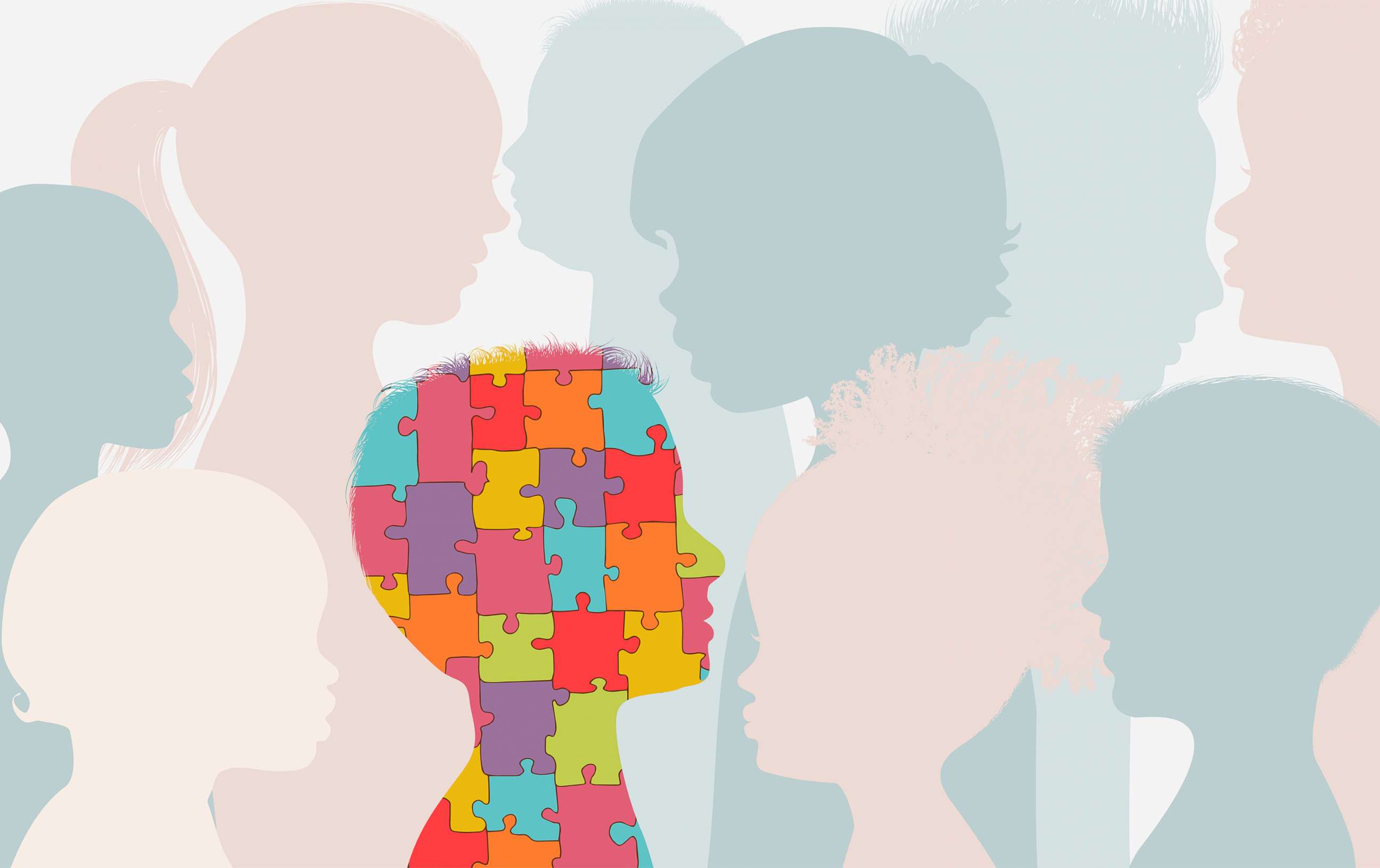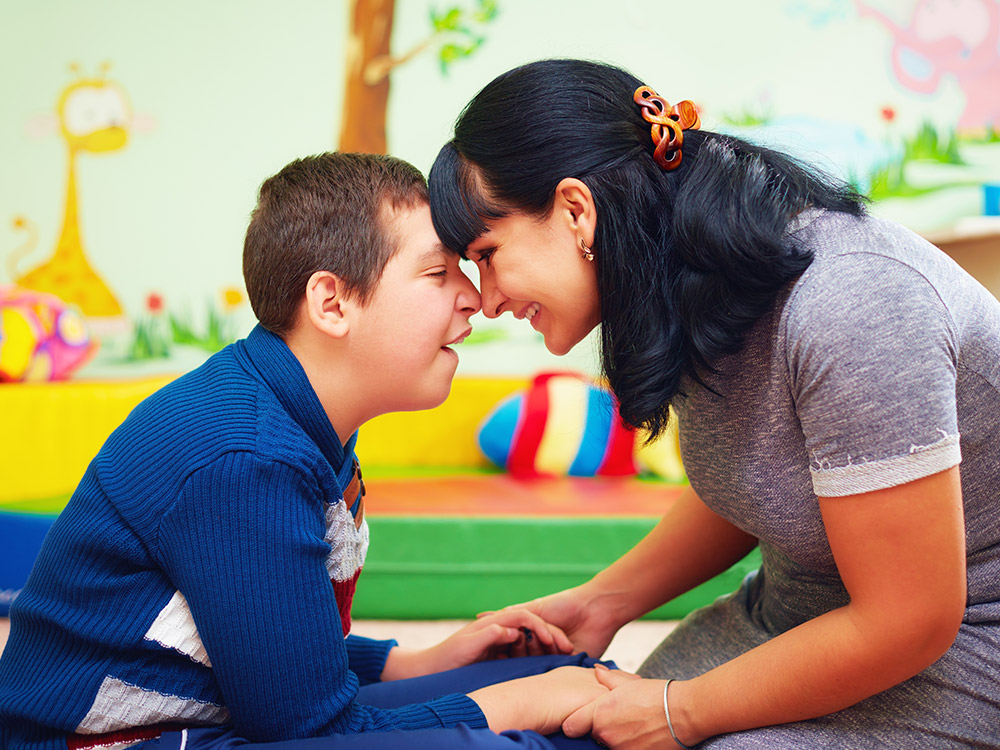The Relevance of Family Assistance in the Journey with Autism
The Relevance of Family Assistance in the Journey with Autism
Blog Article
Recognizing Autism: A Comprehensive Guide to Symptoms And Signs
Autism Spectrum Condition (ASD) encompasses a large range of features that can considerably influence a person's social interactions and day-to-day performance. Acknowledging the signs and signs, such as challenges with eye call, social interaction difficulties, and sensory level of sensitivities, is important for early intervention. Comprehending these subtleties not only help caregivers and teachers in providing suitable support however also promotes a more comprehensive environment for people with ASD. As we explore the intricacies of autism, it ends up being vital to think about exactly how these signs manifest in different ways throughout the range and what ramifications they hold for effective treatment techniques.
Introduction of Autism Spectrum Condition
Defining Autism Range Disorder (ASD) includes recognizing it as a complex neurodevelopmental problem defined by an array of challenges in social communication, communication, and behavioral patterns. The term "range" shows the wide variability in symptoms and their seriousness, which can differ substantially from one person to another. ASD commonly materializes in very early childhood, although some people might not receive a medical diagnosis up until later in life.
Factors influencing the development of ASD consist of environmental factors and hereditary proneness, although the exact reasons continue to be under investigation. Medical diagnosis typically relies upon behavior evaluations, as there are no conclusive clinical examinations for ASD. Early treatment is crucial and can substantially improve end results, concentrating on improving interaction abilities, social communications, and flexible behaviors.
Individuals with ASD may likewise display distinct staminas, such as extraordinary focus to detail or particular locations of know-how. Recognizing the complex nature of ASD is important for fostering an inclusive atmosphere that suits neurodiversity. Continued research is essential for developing efficient treatments and support systems, allowing individuals with ASD to grow and satisfy their prospective within culture.
Common Signs of Autism
Identifying the usual signs of Autism Range Disorder (ASD) is essential for very early recognition and treatment. These signs can differ extensively in intensity and discussion, however specific features are often observed in individuals with ASD.
One of the most common indicators is a marked problem in establishing and maintaining eye call. Individuals might additionally display minimal interest in social communications and show a preference for solitary play.
Sensory level of sensitivities are likewise usual; people may underreact or overreact to sensory stimuli, such as lights, audios, or appearances. autism. Language advancement can be irregular, with some kids displaying delayed speech or utilizing language in unusual means, consisting of echolalia-- repeating sentences or expressions listened to elsewhere
It is important to note that not every person with ASD will certainly display all these indications, and the degree of these actions can vary significantly. Early recognition allows for prompt assistance and sources, improving the quality of life for those on the range.
Social Communication Challenges
Social communication obstacles are a trademark of Autism Spectrum Condition (ASD), influencing a person's ability to engage successfully with others. These difficulties check can manifest in various methods, including difficulties in launching and maintaining conversations, recognizing social hints, and responding suitably in social communications.
Individuals with ASD might deal with nonverbal communication, such as eye call, face expressions, and body movement. This can cause misunderstandings, as their communicative intent might not be properly analyzed by others. They might discover it hard to understand the subtleties of tone and context, which are essential for efficient communication.
In group settings, individuals with ASD may feel overloaded and may not recognize just how to join in discussions (autism). They may also display atypical conversational patterns, such as monologuing about details rate of interests without identifying social reciprocity
Additionally, these challenges can cause social seclusion or troubles in creating connections, as peers might misunderstand their behavior or communication design. Recognizing these social interaction challenges is vital for promoting encouraging atmospheres that promote social skills growth and enhance the high quality of interactions for individuals on the autism range.
Sensory Level Of Sensitivities and Feedbacks
Several individuals with Autism Spectrum Disorder (ASD) experience enhanced sensory level of sensitivities that can considerably influence their day-to-day lives. An individual with ASD might locate daily sounds, such as a vacuum cleanser or crowded settings, extremely traumatic, leading to stress and anxiety or crises.
Sensory processing distinctions in people with ASD can additionally affect their capability to take part in social communications and regular tasks. For example, a youngster who is sensitive to touch might stand up to Website physical love or avoid specific clothing fabrics. Conversely, a choice for certain textures or preferences can limit nutritional options and produce challenges throughout nourishments.
Understanding these sensory sensitivities is necessary for recognizing the special experiences of individuals with ASD. Awareness of their sensory accounts can promote much better interaction and support strategies, developing an environment that accommodates their requirements and enhances their top quality of life. Ultimately, acknowledging sensory sensitivities is a vital element of understanding the more comprehensive spectrum of autism.

Supporting People With Autism
Efficient assistance for people with Autism Spectrum Problem (ASD) is important for enhancing their general well-being and promoting freedom. Assistance methods must be tailored to fulfill the distinct needs of each individual, considering their staminas and obstacles.

Social abilities training can also play a critical duty. autism. Engaging individuals in team tasks or role-playing situations can improve their capacity to browse social communications. In addition, it is important to inform relative, caregivers, and peers regarding ASD to foster a encouraging and comprehensive area
Final Thought
Finally, a comprehensive understanding of Autism Range Problem is necessary for acknowledging its signs and signs. Early recognition of usual features, such as social interaction difficulties and sensory sensitivities, enables caretakers and instructors to execute efficient treatments. By cultivating enhanced interaction and social abilities, individuals with autism can browse their environments more successfully. Ultimately, raised recognition and support can significantly enhance the quality of life for those impacted by ASD.
Autism Spectrum Disorder (ASD) incorporates a broad array of qualities that can substantially affect a person's social interactions and daily performance.Individuals with ASD might battle with nonverbal communication, such as eye contact, facial expressions, and body language.Several people with Autism Range Problem (ASD) experience enhanced sensory sensitivities that can significantly affect their everyday lives.Sensory processing differences in individuals with ASD can likewise impact their capacity to engage in routine tasks and social interactions.Understanding these sensory sensitivities is important for identifying the one-of-a-kind experiences of people with ASD.
Report this page